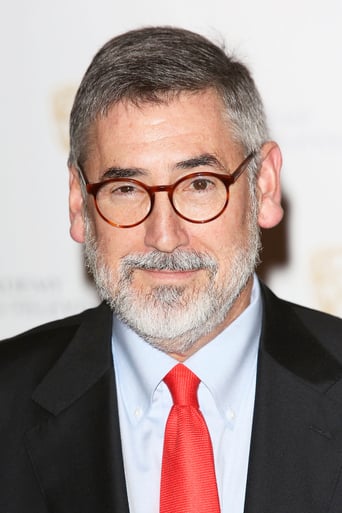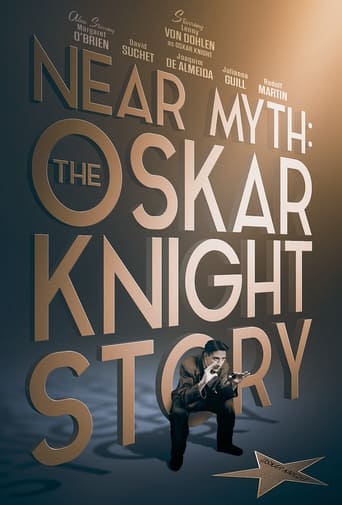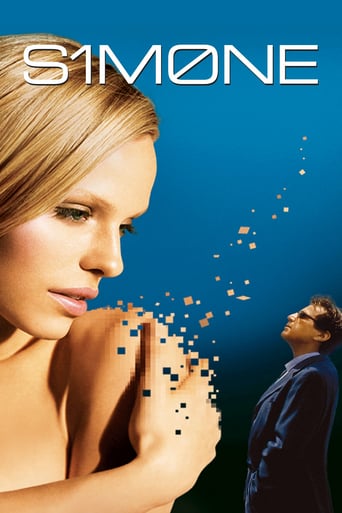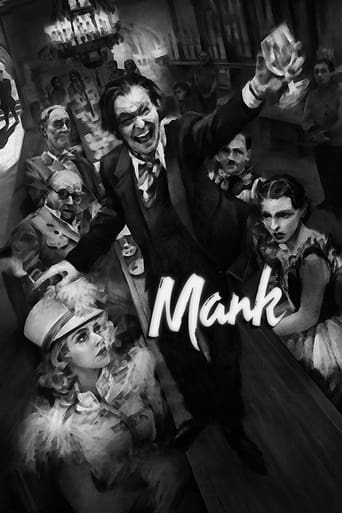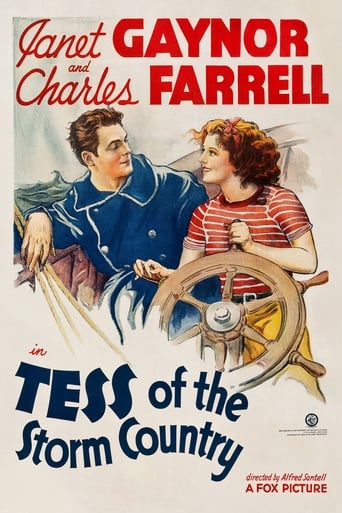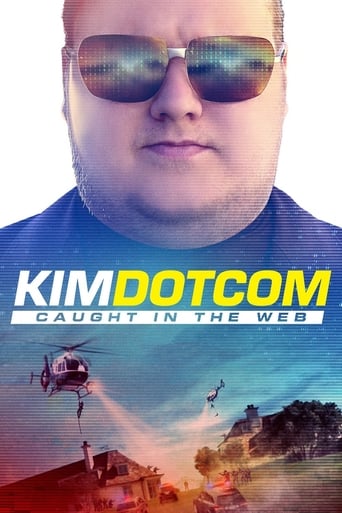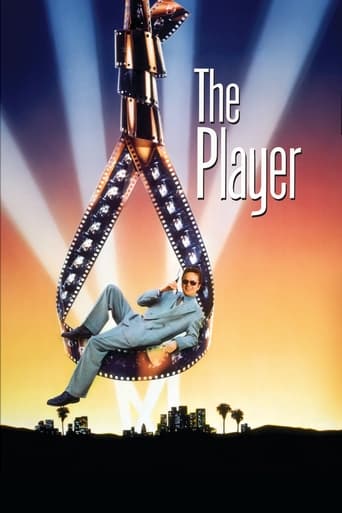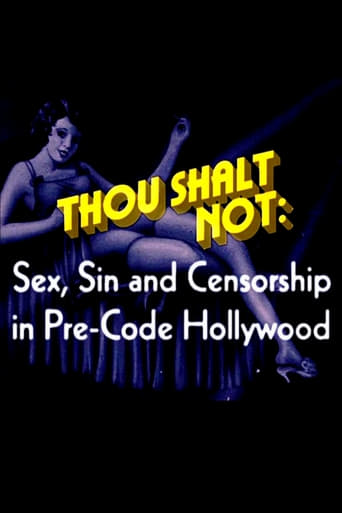

Thou Shalt Not: Sex, Sin and Censorship in Pre-Code Hollywood (2008)
A look at the forces that shaped Pre-Code Hollywood and brought about the strict enforcement of the Hays Code in 1934.
Watch Trailer
Cast
Similar titles
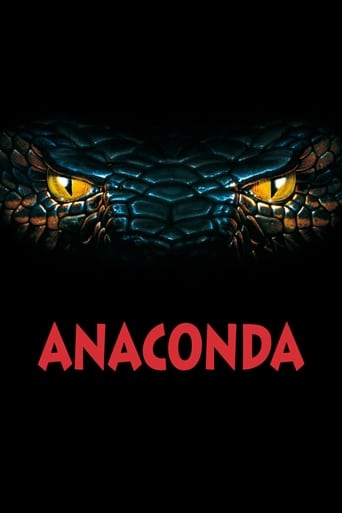
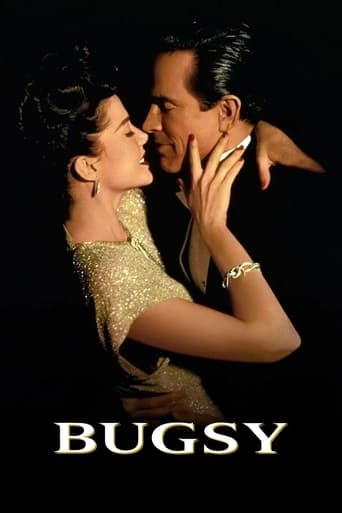
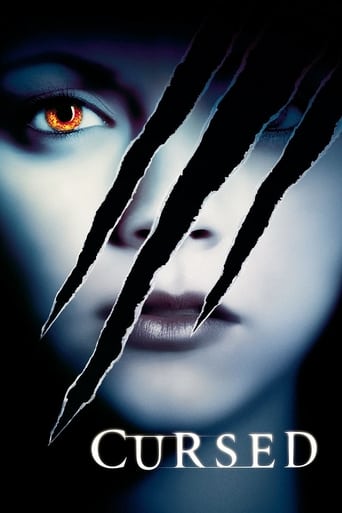
Reviews
Best movie of this year hands down!
Absolutely brilliant
To all those who have watched it: I hope you enjoyed it as much as I do.
By the time the dramatic fireworks start popping off, each one feels earned.
. . . of how "Hitler's Pope" used his U.S. henchmen such as Joseph Breen to ride a rising tide of anti-Semitism in dragging America back into to Dark Ages. Under almost exclusively Jewish leadership, THOU SHALT NOT shows that the Hollywood of 1925-1934 championed Feminism, LGBT Rights, equal pay for equal work, Gay Marriage, birth control, prison reform, family planning, fighting income disparity, exposing government corruption, defying Fascist Authority, abandoning Feudal Traditions, promoting cutting-edge science, behaving with Common Decency, respecting the Rights of the Individual, Free Thinking, the power of the Union Label, Social Justice, Liberalism, Voting Power, Religious Freedom, and Change. Since EVERY ONE of these Tinsel Town Precepts upset the racist bigots running Rome, Breen's American Brownshirts squelched our historic Freedom of Speech and Right to Mature Entertainment totally for some 20 years. Though a few rays of Light have broken through the Dark Clouds of mindless superstition, craven cowering, and lock-step compliance since 1954, THOU SHALT NOT proves that we have not entirely bounced back from the Pit yet. THOU SHALT NOT references 54 "Pre-Code" flicks (including two animated shorts) and 14 movies released after July 1, 1934 (a date which has lived on with Infamy). A dozen present-day experts on American Culture such as Hugh Hefner lament what we lost 81 years ago, and wonder if we will EVER regain the Wisdom and Modernity of 1933.
Have seen lots of these movies recently; pre code era shown a lot on TCM. 42nd Street part of this time period. So was Footlight Parade. Skimpy women's costumes were all the rage. Talkies were new. Hotties were in, ala that scrumptious Clark Gable or Humphrey Bogart or James Cagney. The stock market crash was a recent bad memory. The Great Depression was the worst and biggest news of all, and people wanted to see a world where women wore good clothes and had great jewelry, even if they had to sell their bodies to get them.This documentary lightly touches upon Mae West. More of her genius was spent on the live stage. In 1927 she produced a racy stage show, that was so provocative that it was raided by police and she was thrown in jail for a week. She used the incident as mere publicity, and lots of men were outside waiting for her when her jail term ended. It is said that she was rather friendly to the warden, so she was able to get out of jail early. She even said how she discovered Cary Grant.This documentary erroneously depicts the American public as only liking movies. Perhaps the lower classes did just that, but others still preferred going to see live drama. That is where I feel this documentary falls short; yes, it is about the film industry, but film was not the only mass entertainment.It was interesting that the post code era drew lots of audiences eager to see sensuality only hinted at; where long kisses drew audiences awaiting romance instead of sleazy bedhopping. That post code era quickly gave way to war movies; singing and dancing, flashy machine gunners and airplane fliers. Film noir of late forties and early fifties took over, with a little sexuality shown by some such as Marlon Brando in Streetcar Named Desire.Post code predated World War II. Clark Gable was in World War II. Jimmy Cagney made movies such as Yankee Doodle Dandy; very patriotic, including singing and dancing. Criminals named Capone and Malone were being replaced by names such as Hitler and Mussolini. Breen and church groups were still policing movies. Moviegoers now wanted to see happy times. Singing, dancing, clean movies were big, such as Meet Me in St. Louis, Little Women, The Pirate, An American in Paris, and on into the 1950s.Back to pre code: Interesting in this documentary was the part about Busby Berkeley, who used shadowed images of scantily clad or unclad women in his geometrical designs. He was able to get past the censors.Code breakers: they were very daring.8/10
Will Hays--Joseph Breen the topless scene shown at 8:00 mark was a religious epic--"Ben Hur"! subtitles didn't work economics pushed films towards sleaze and then later away from it gay Code of 1930 pretty much ignored--tightened up in 1934I adore the so-called 'Pre-Code' films and was delighted when Turner Classic Movies brought this wonderful documentary to its audience. It was great because it was extremely well made and because it introduced this style of movie to viewers. Up until 1930, there were lots and lots of censorship boards across the nation but none for the studios themselves. Because of this, standards varied wildly. Some relatively innocent films were condemned by some groups and some amazingly adult and salacious films passed! Because of this inconsistency, the studios finally hired Will Hays to start the new board. However, it soon became obvious that this board had no teeth to enforce the new code--nor did it seem to want to clean up the films. Nudity, violence and a glorification of adultery were pretty common and things continued this way until mid-1934. And, this 1930-1934 is the Pre-Code era. But when the Depression and public outrage resulted in much lower revenues, the studios grudgingly decided the clean up its act and created the NEW Production Code--and the fun, as they say, was over!This film not only details this process but it also celebrates the various famous examples of sleaze--such as "Red Headed Woman", "Tarzan and His Mate" and "Baby Face". Now I have seen other documentaries on this time, but "Thou Shalt Not" works best for two HUGE reasons. First, the guests who were interviewed really were excellent. Second, and most importantly, because Turner Entertainment owned the rights to these Pre-Code films, it was easy to show the clips--and in pristine condition. By contrast, the earlier documentary "Hollywood Uncensored" showed clips mostly from public domain films or the clips were VERY, VERY scratchy. "Thou Shalt Not" and "Complicated Women" (also by TCM) are both excellent chronicles of this age--and are exciting, educational and amazingly sleazy!
Thou Shalt Not: Sex, Sin and Censorship in Pre-Code Hollywood (2008)**** (out of 4) Another brilliant documentary from Turner Classic Movies. This one deals with Hollywood from 1930-1934 when movies pushed the limits on sex, drugs and various sinful things. The film talks about how two Priests came up with the "rules" of what you could or couldn't do and then talks about Hollywood broke all of them and tried to push the limits of what you could show. The Hayes Code finally broke through in 1934 when the Catholic Church jumped in and started boycotting the films and telling their followers that it was a sin to watch these movies. John Landis, Jonathan Kuntz, Leonard Maltin, Rudy Behlmer, Hugh Hefner and Jack Valenti are among the people interviewed for this film, which does a great job at telling the story of the Pre-Code movies. We get clips from countless films including The Divorcée, Night Nurse, The Public Enemy, Midnight Mary and various others. These types of documentaries still upset me since a religious group or a group of people can have so much control on what others do. Needless to say, the Catholic Church should have been looking in their own closet instead of going after Hollywood. Some of the early history is also talked about and this includes the scandal caused by Roscoe Fatty Arbuckle and his rape trial. If you aren't familiar with this great part of Hollywood history then this film does a great job at introducing it. Complicated Women is another Turner doc that covers this era.

